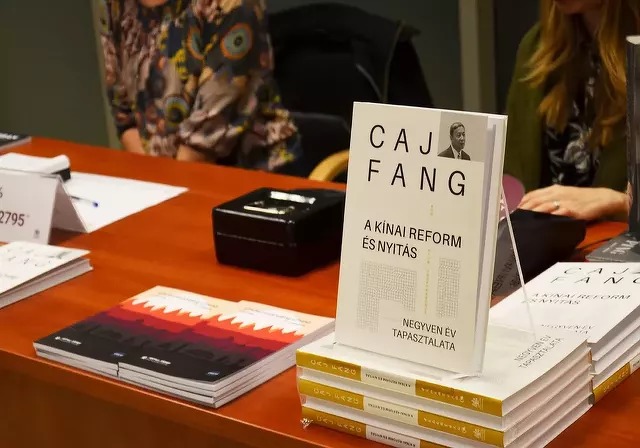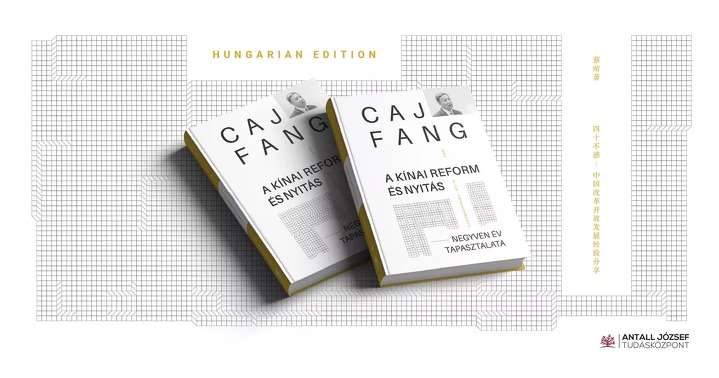The book launch and roundtable discussion of the Hungarian edition of Fang Cai’s Perceiving Truth and Ceasing Doubts: What Can We Learn from 40 Years of China’s Reform and Opening-up? (Hungarian edition), was organised by the Antall József Knowledge Centre, the China-CEE Institute, and the Institute of European Studies at the Chinese Academy of Social Sciences (CASS) on 29 October 2019 at AJKC’s Lecture Hall.

After the event’s welcoming remarks, delivered by Zsolt Csepregi (Deputy Director for International Affairs, AJKC) and Xin Chen (Deputy Director General, Institute of European Studies, CASS), the opening statement was given by Changhong Pei (Former Director General, Institute of Economics, CASS). In his speech, Mr Pei highlighted that the success of the Chinese reform and opening-up policy was a result of the balance of public and private ownership.

The participants of the roundtable discussions were HE Sándor Kusai (Former Ambassador of Hungary to China), Viktor Eszterhai (Senior Researcher, Pallas Athene Innovation and Geopolitical Foundation), Liejun Wang (Deputy Director, Department of Social Development, DRC), and Yu Yao (Research Fellow, Institute of Economics, CASS). The discussion was moderated by Viktória Anna Papp (International Relations Manager, Asian and African Relations Department, AJKC).

During the first round of questions, the speakers discussed why introducing the reform and opening-up policy was necessary for China. According to HE Sándor Kusai, the key elements of the reforms were the failure of the previous economic system and the joint creative efforts of Chinese society. He went on to say that the Chinese miracle stems from the uniqueness of the Chinese economic system, which cannot be copied, but certain elements of it can be adapted into other systems. Liejun Wang added that certain achievements of the planned economy—for example, the possibility for rural residents to move to urban areas—contributed to the success of the current system as well. Viktor Eszterhai viewed modernisation as an important factor in the reform process, while Yu Yao highlighted the role of societal changes, along with the economic reforms.

The experts also analysed how China achieved economic success and became the powerhouse that it is today. Wang argued that the success of China was in balancing the processes of centralisation and decentralisation. HE Kusai highlighted the importance of learning the method involved in creating the new system, not the concrete policies involved in the process. As for the economic growth of China, Wang expressed that the speed of aging in the country is too fast, which poses a challenge to the economy itself, and that he saw the solution in increasing the quality of the labour force.







